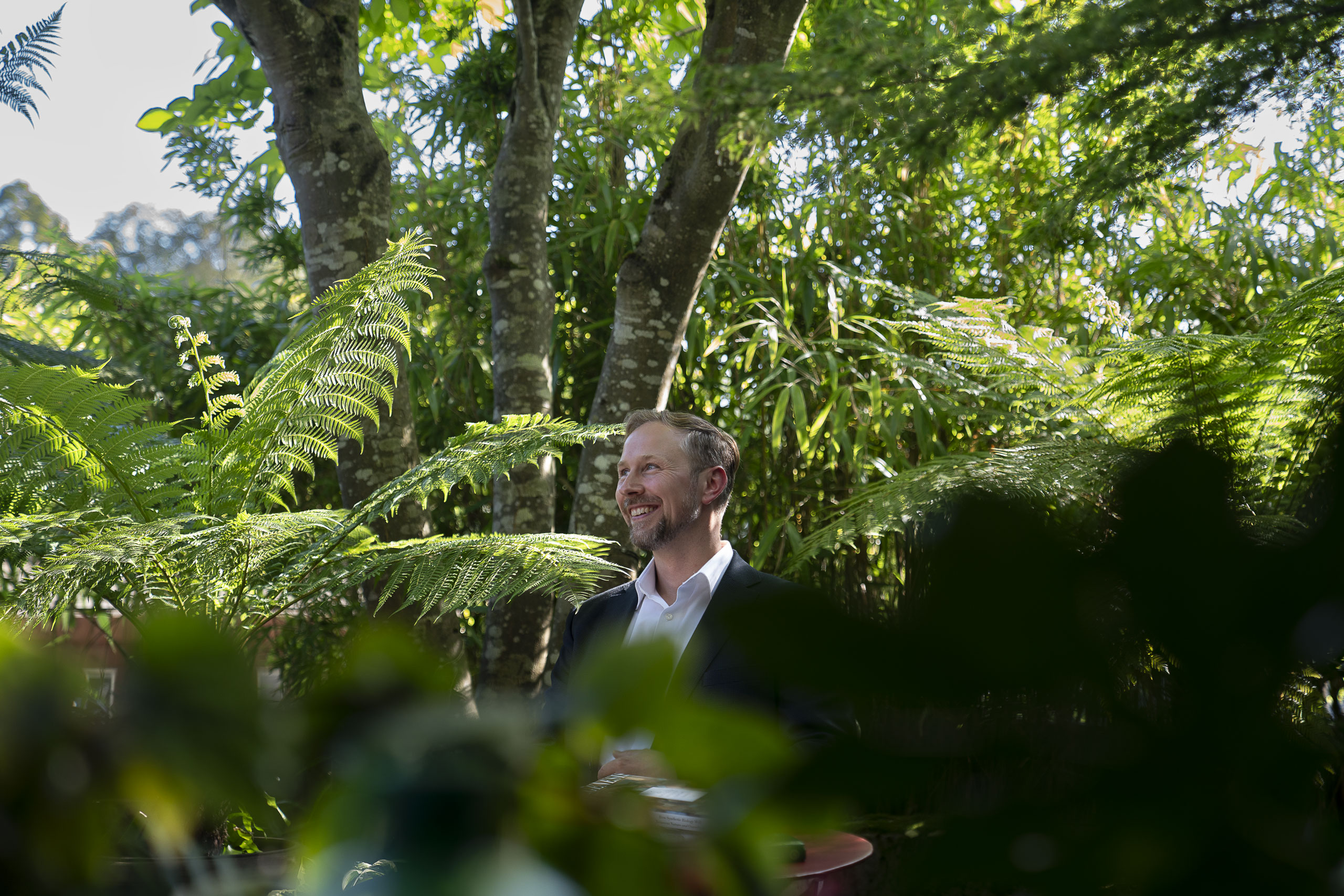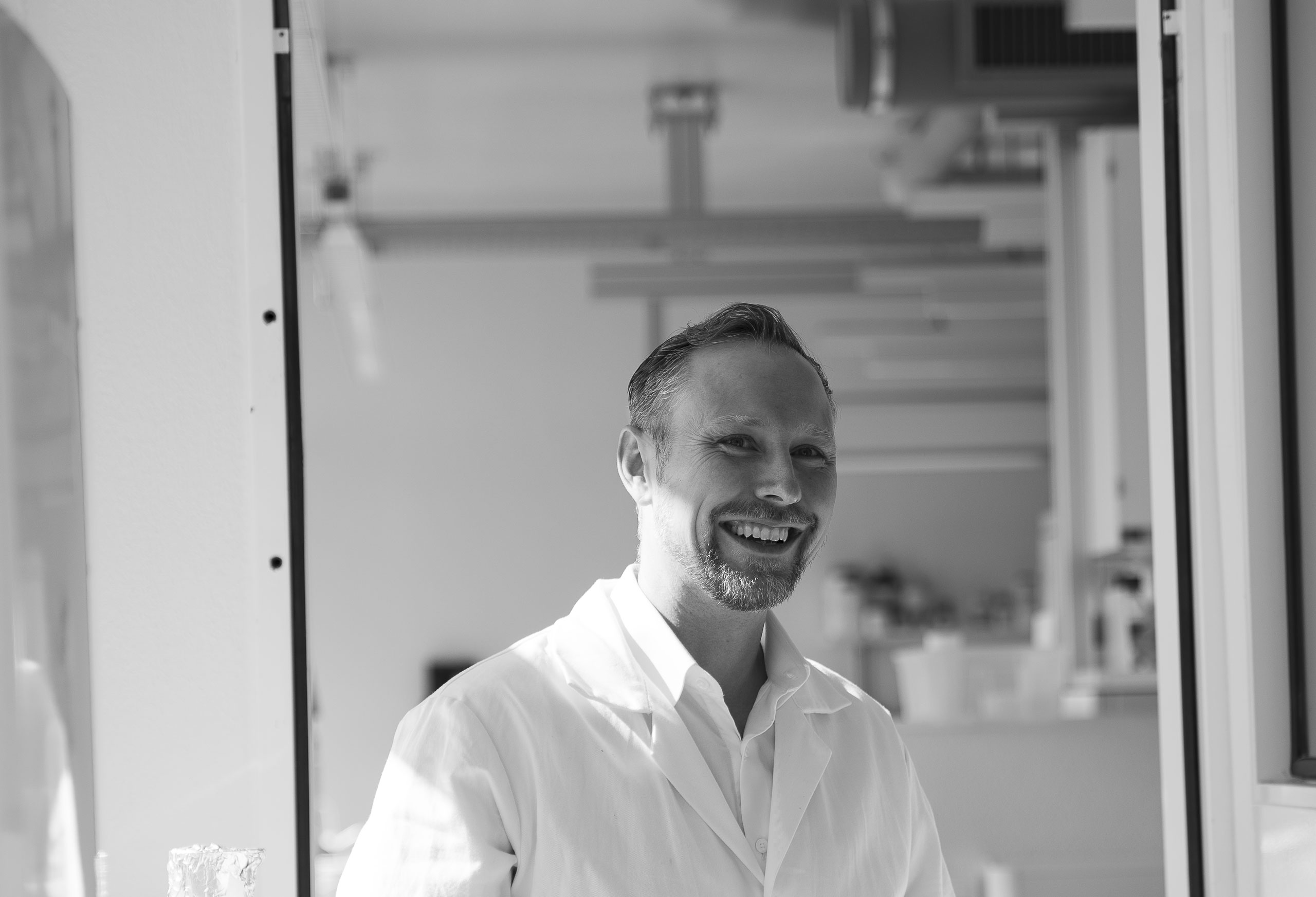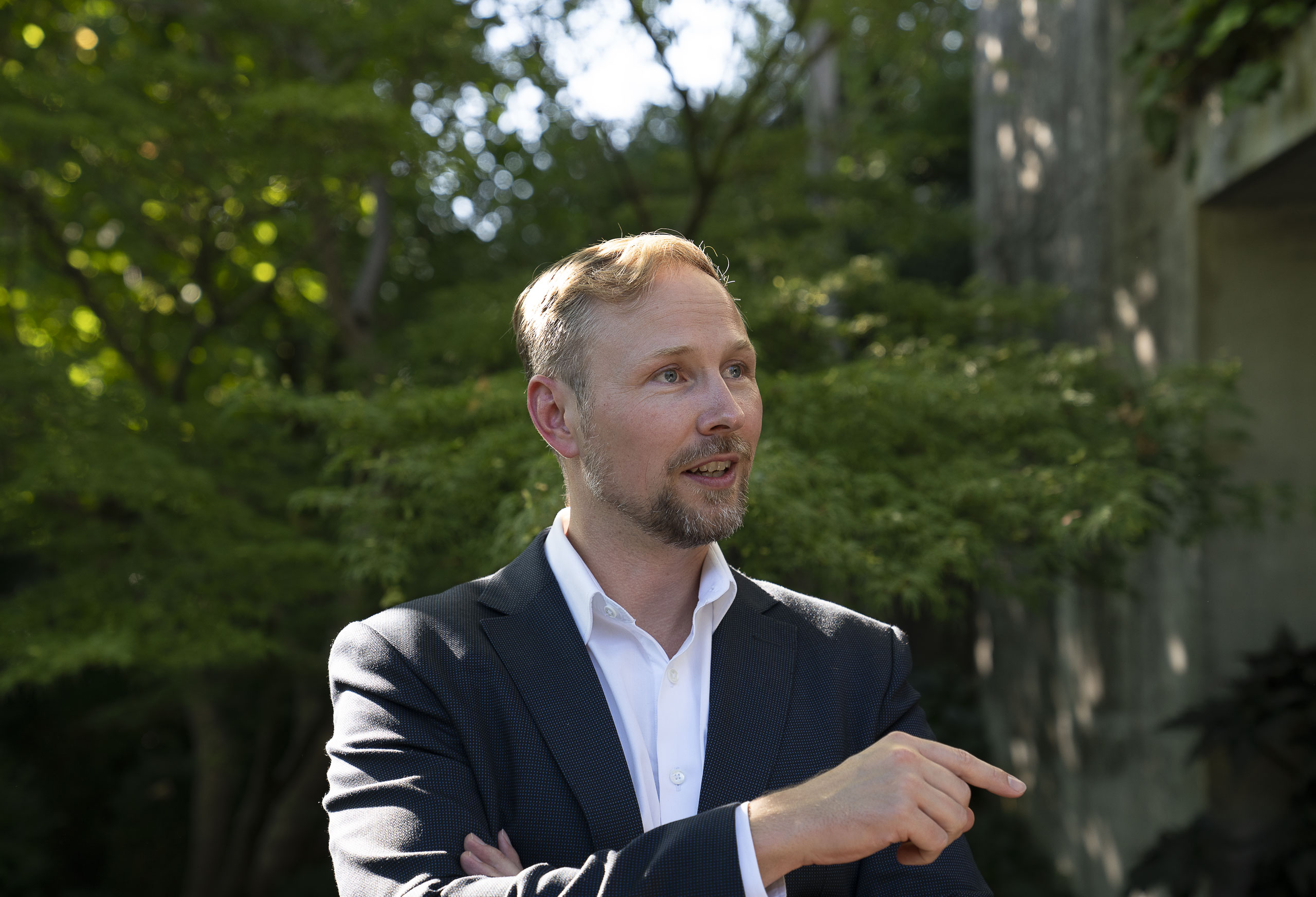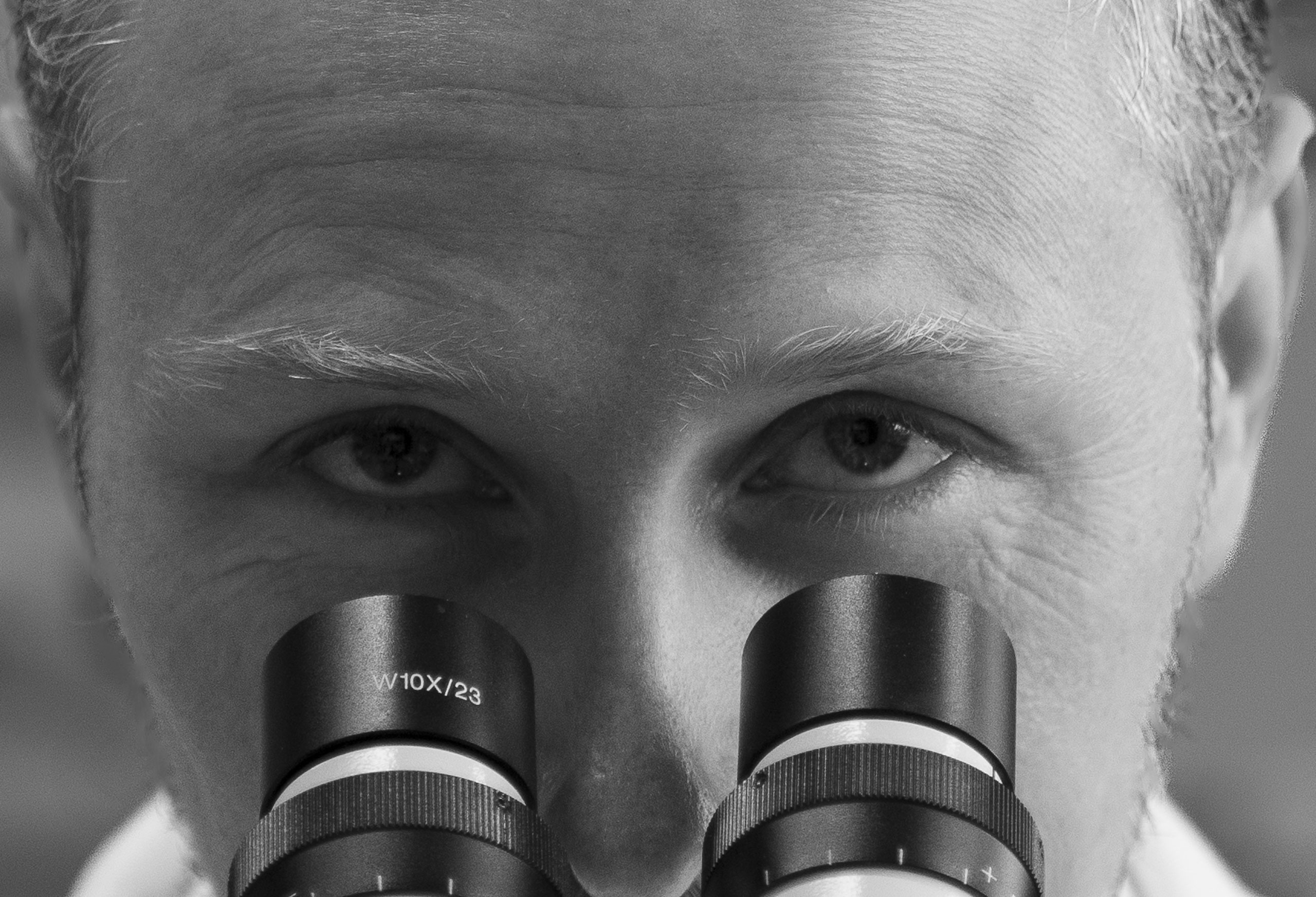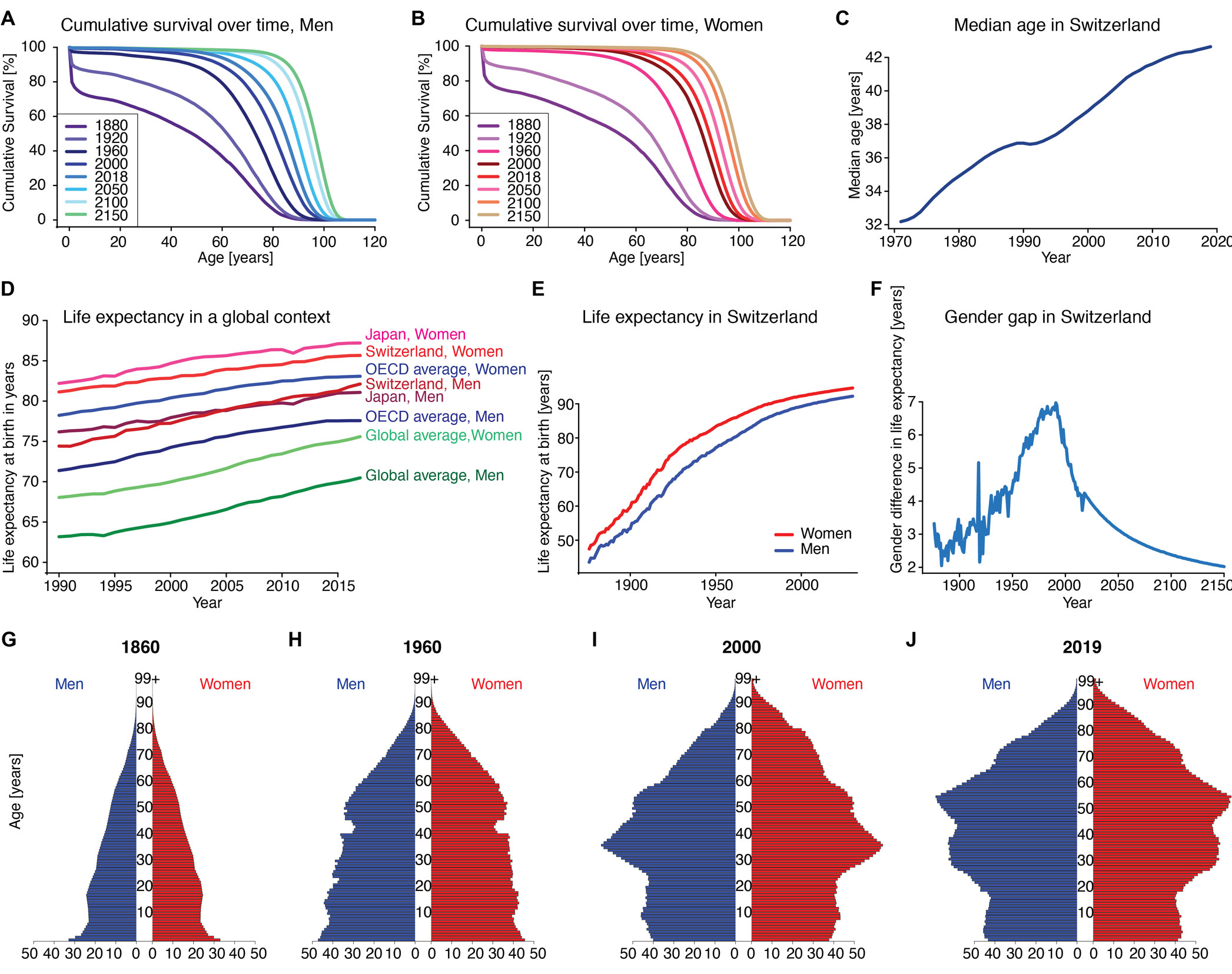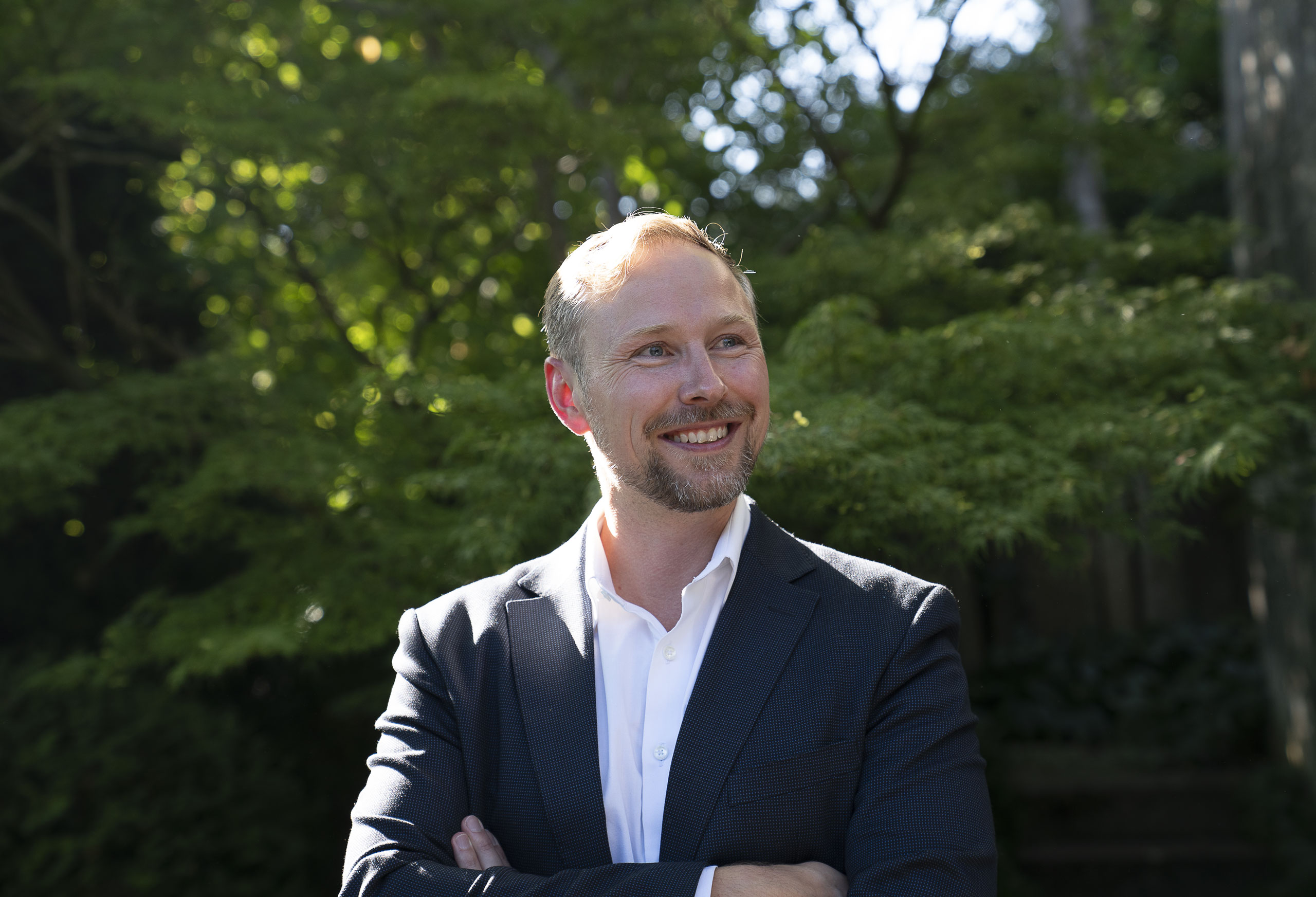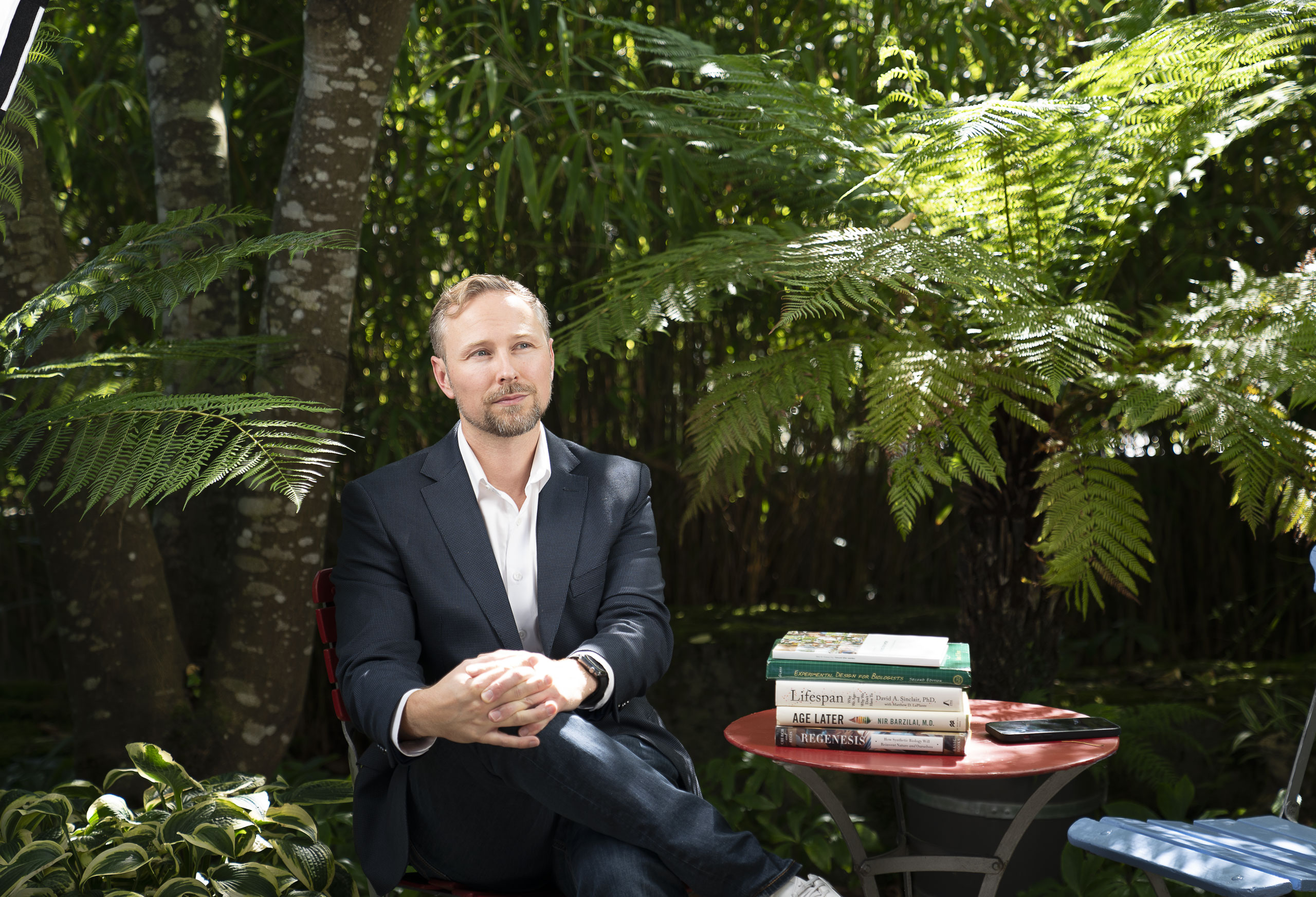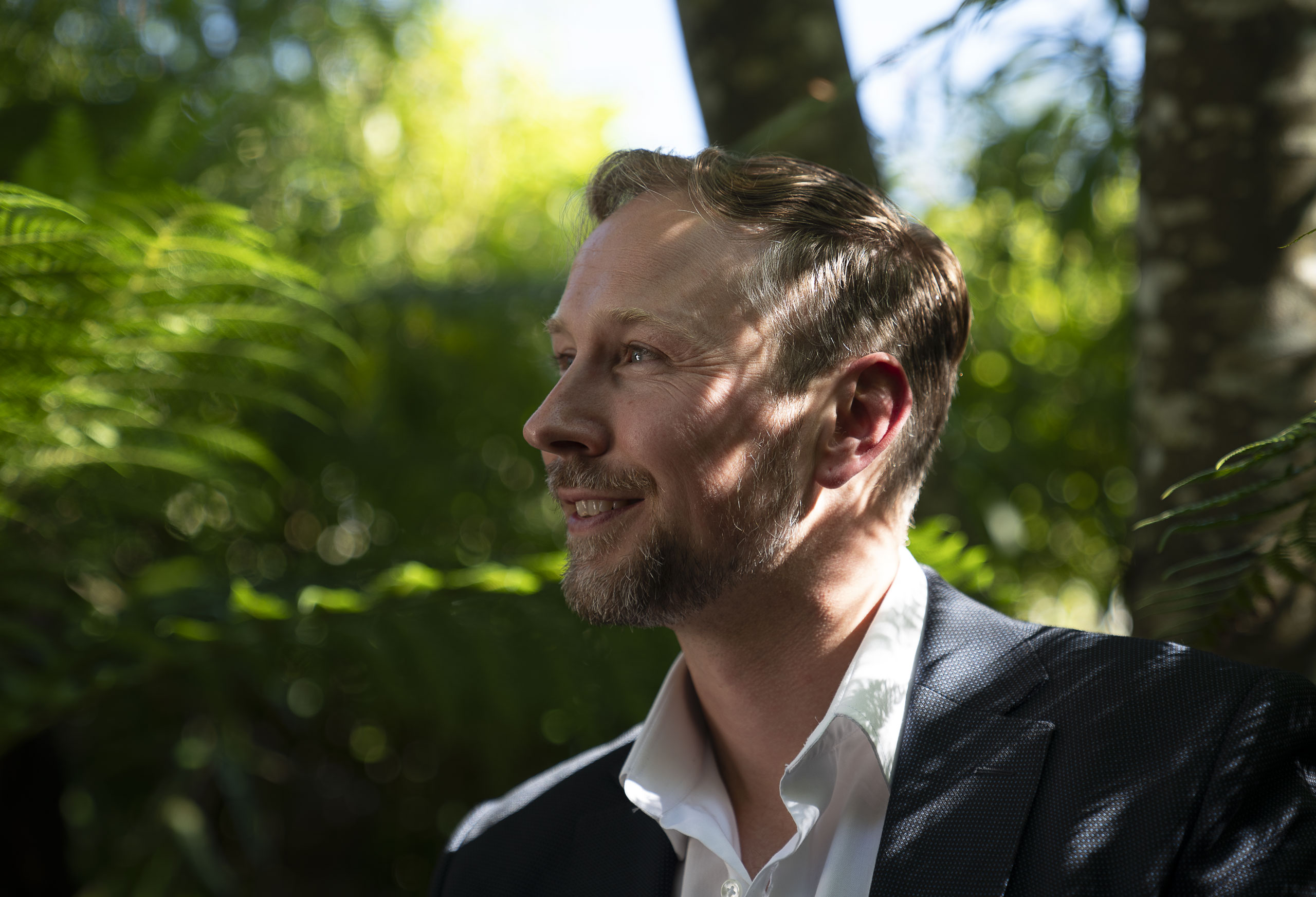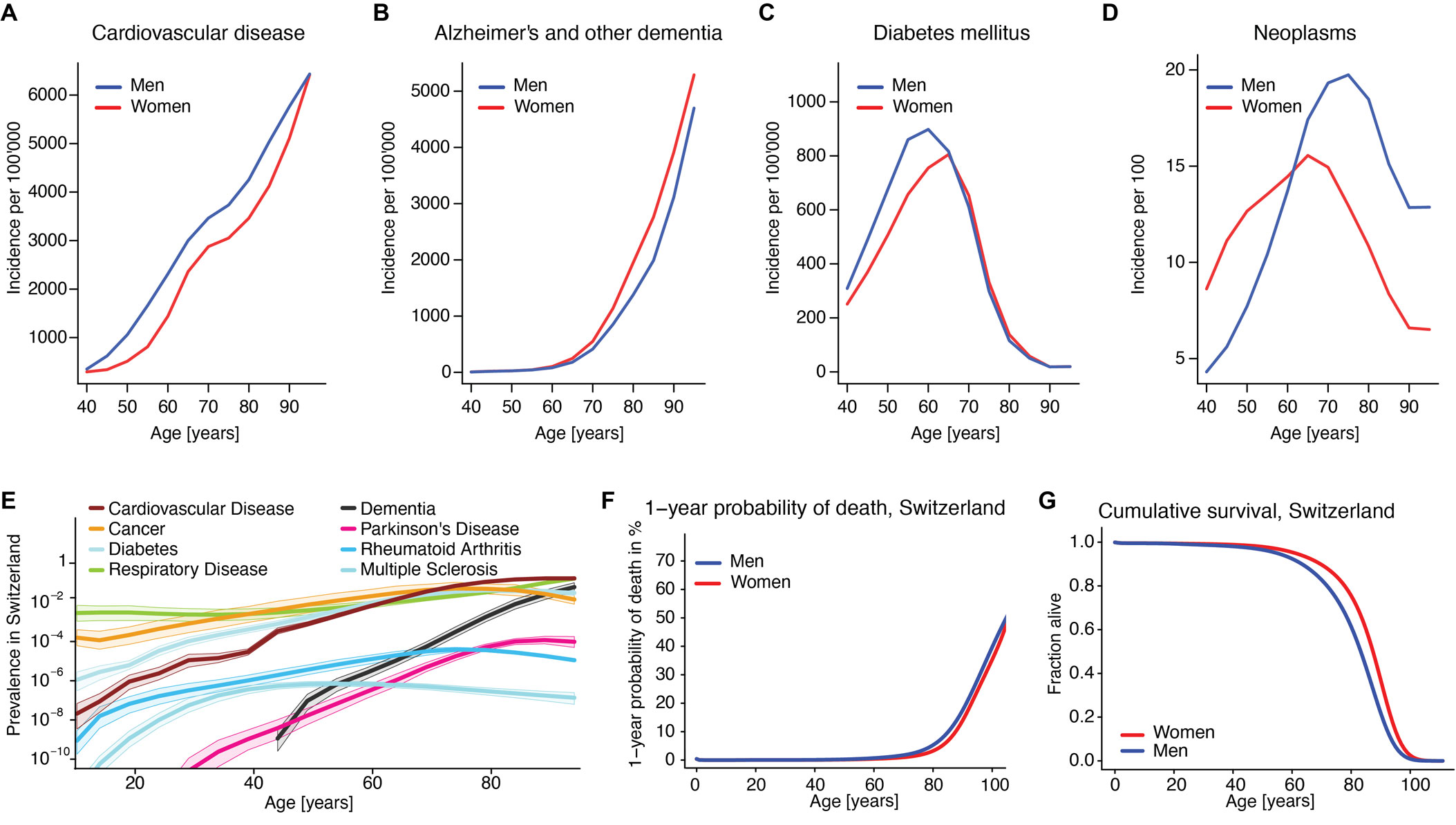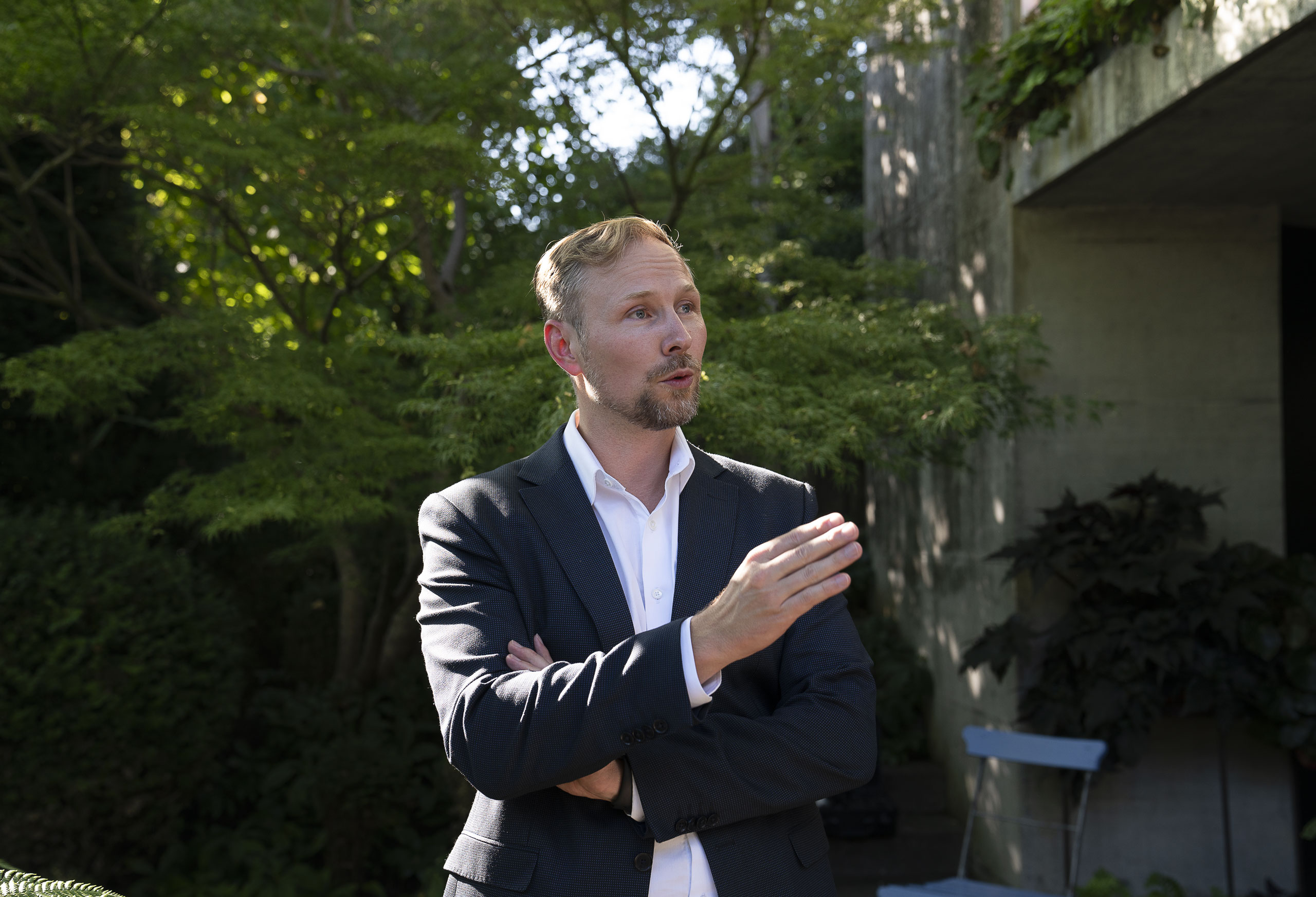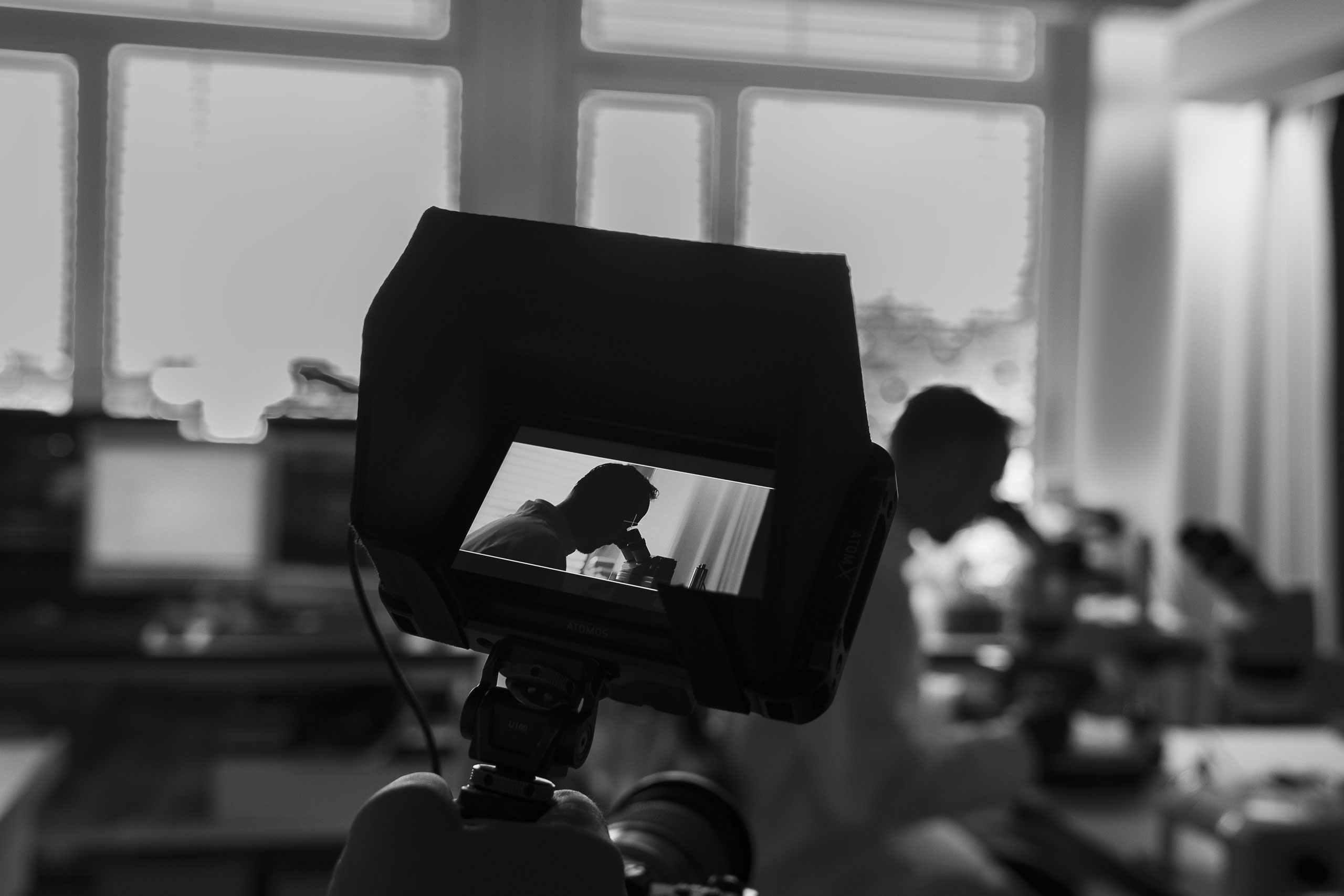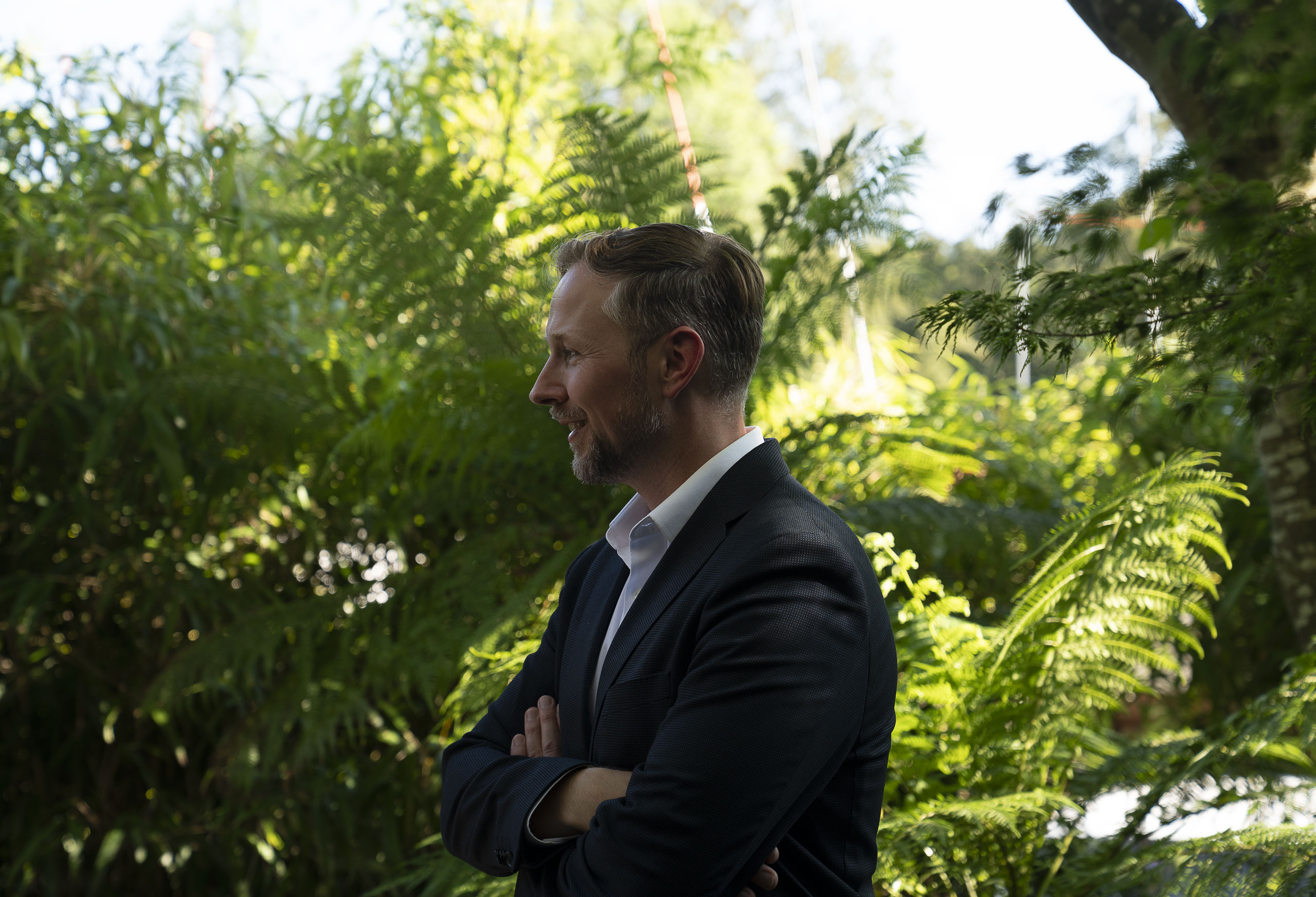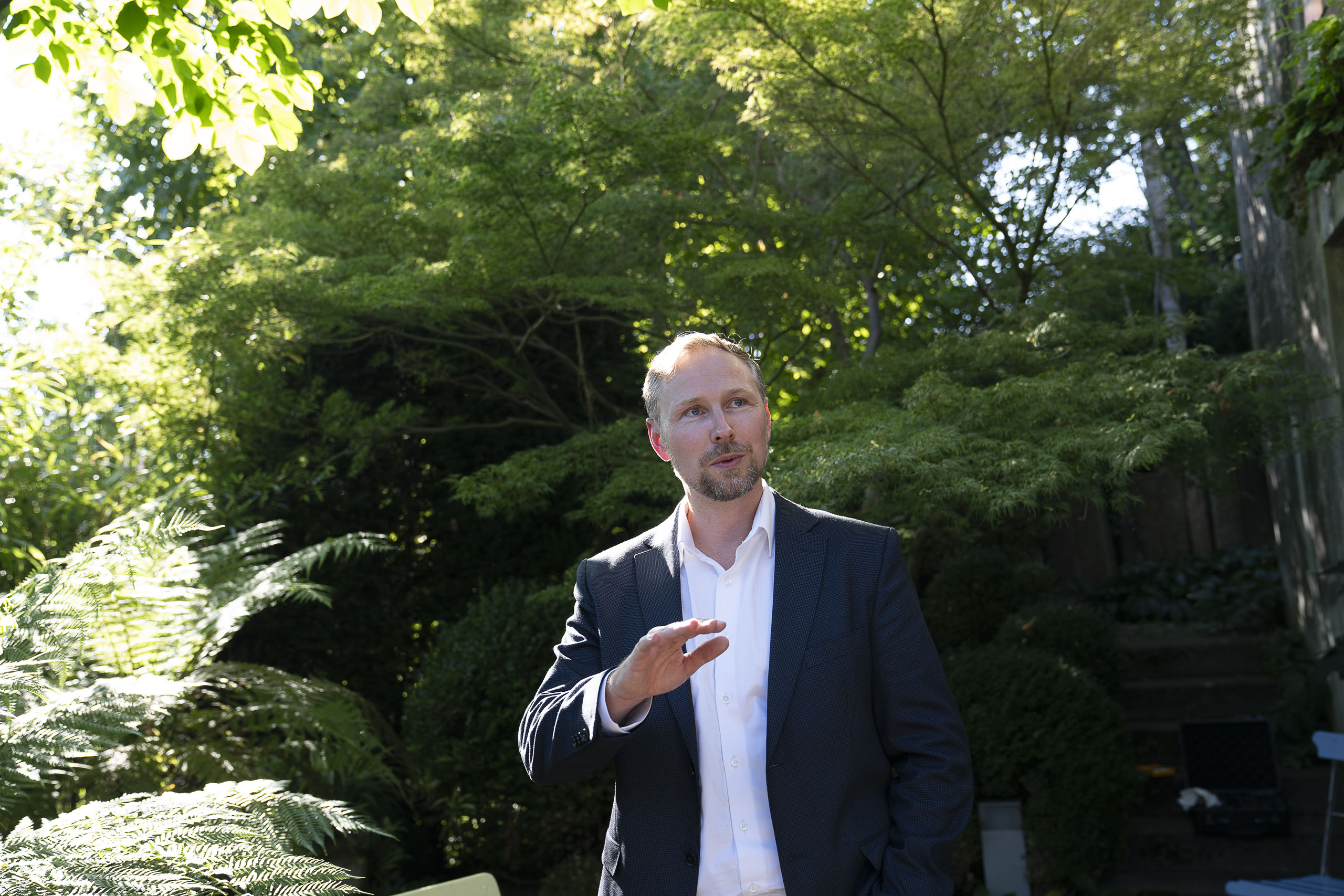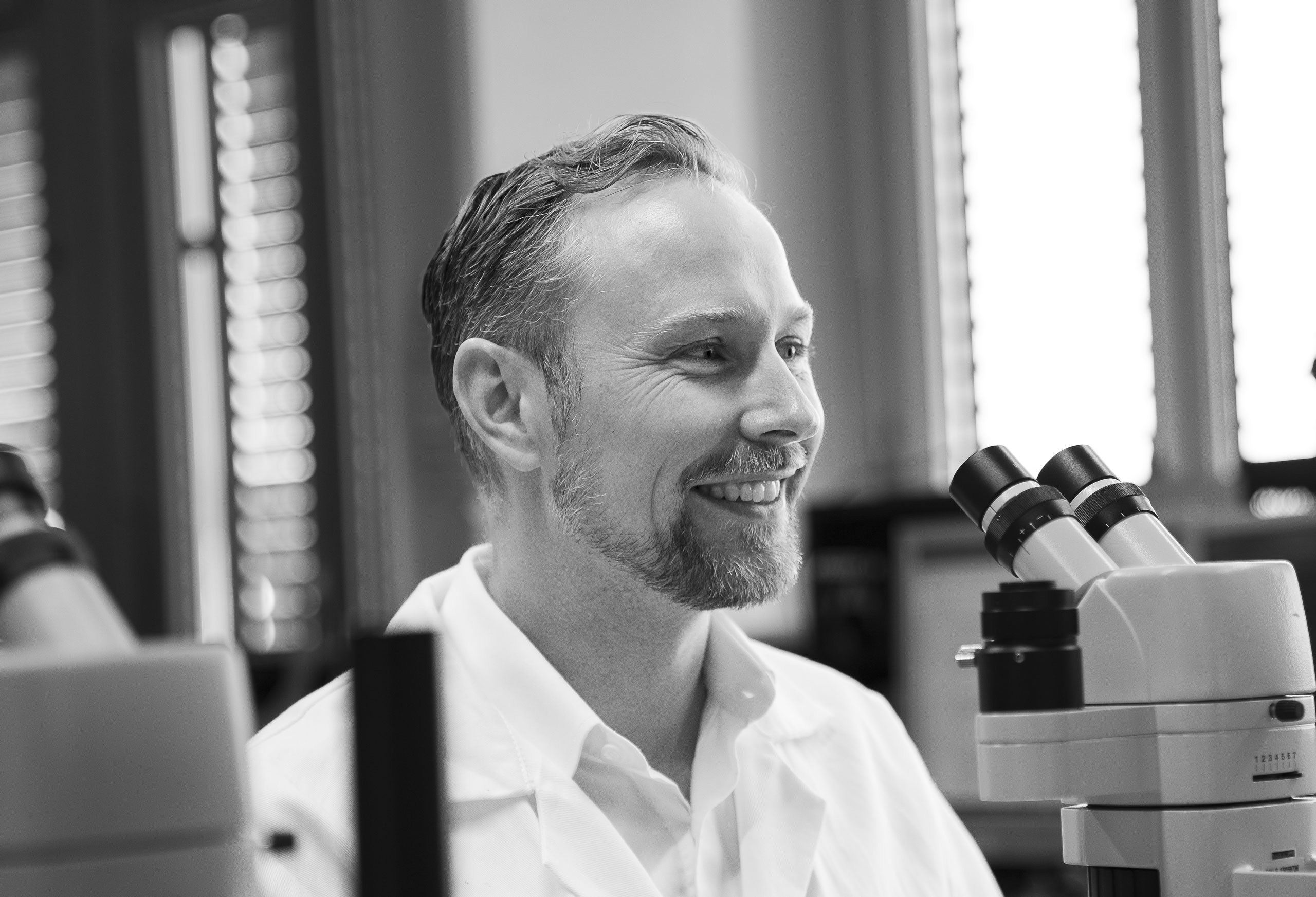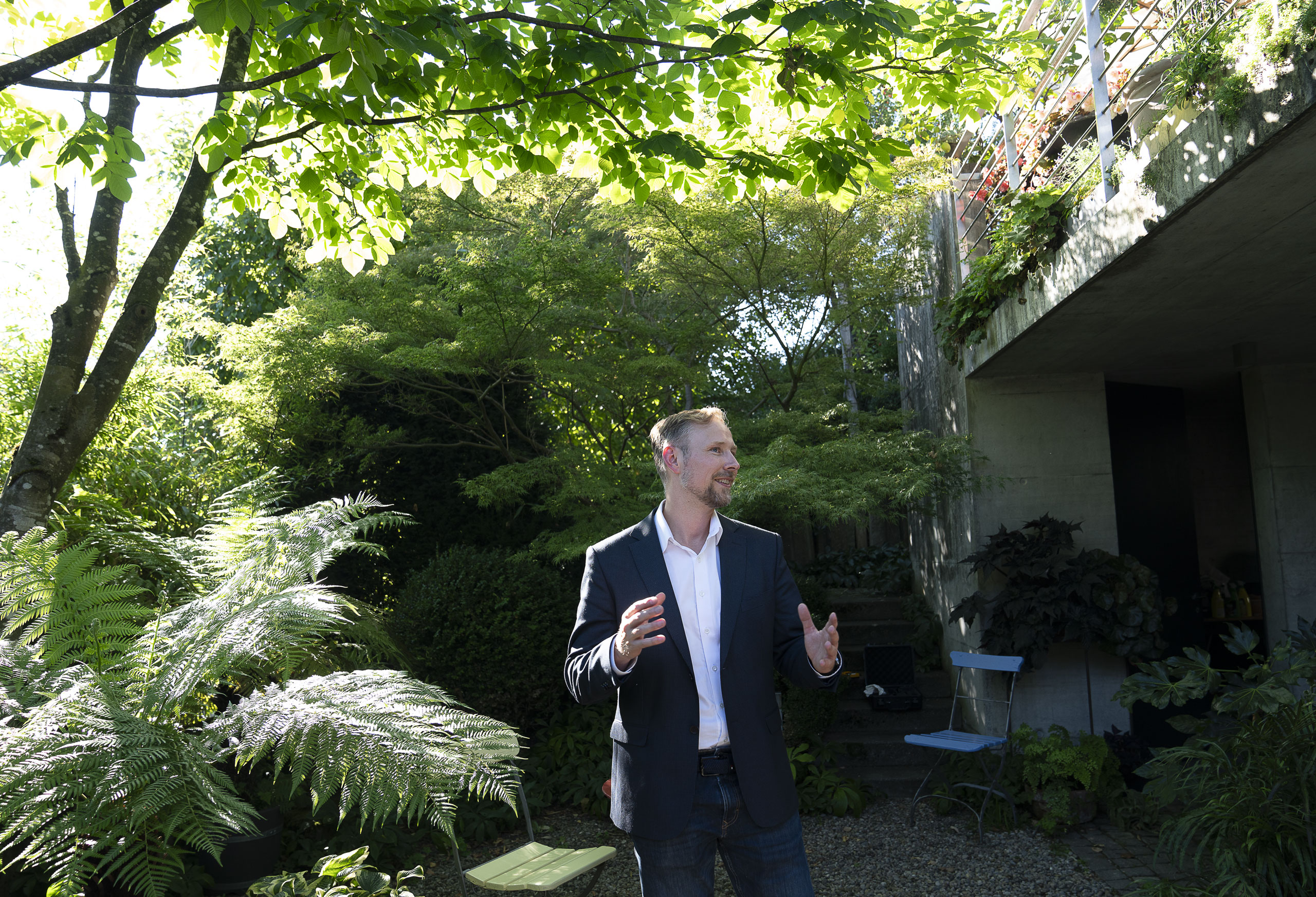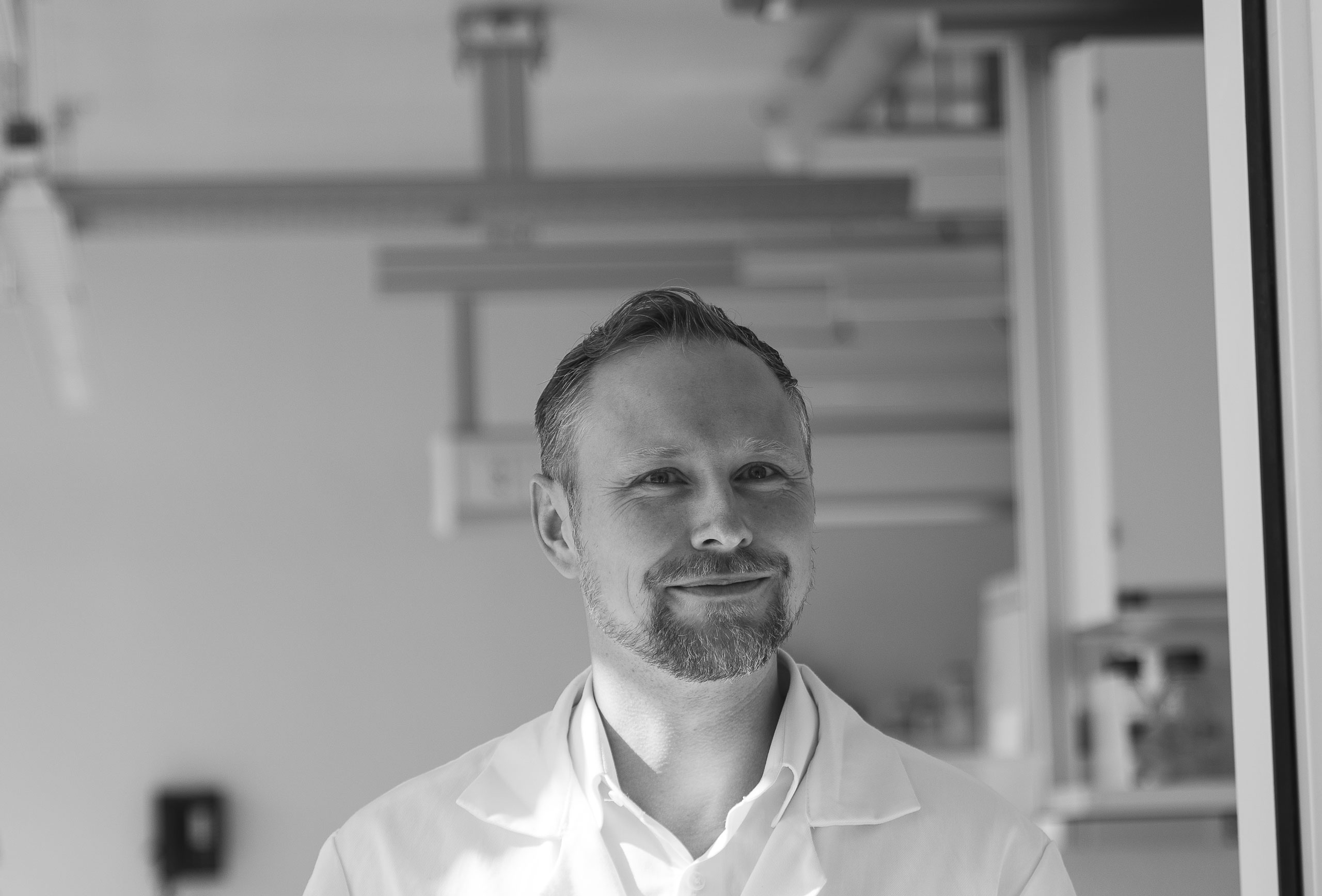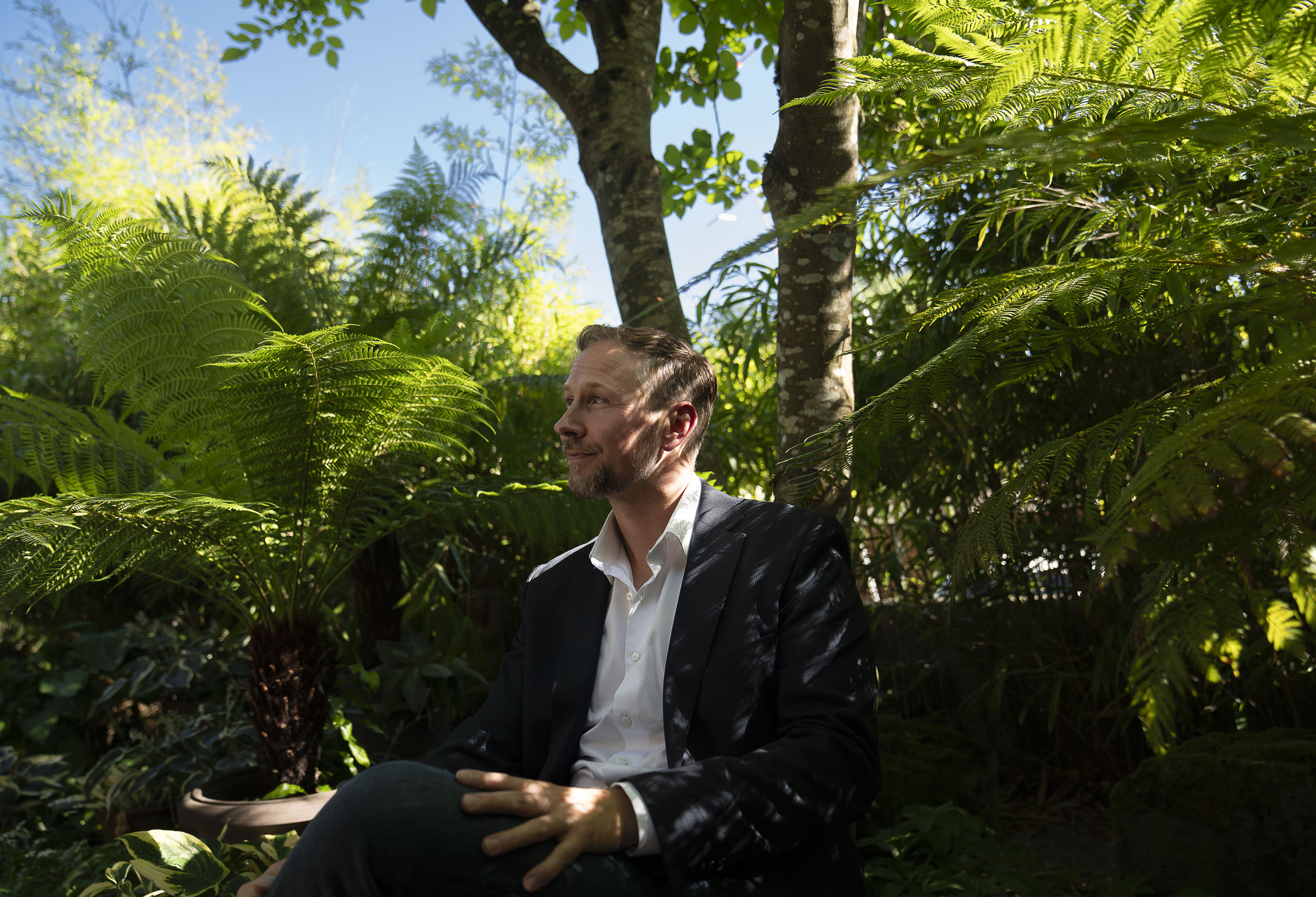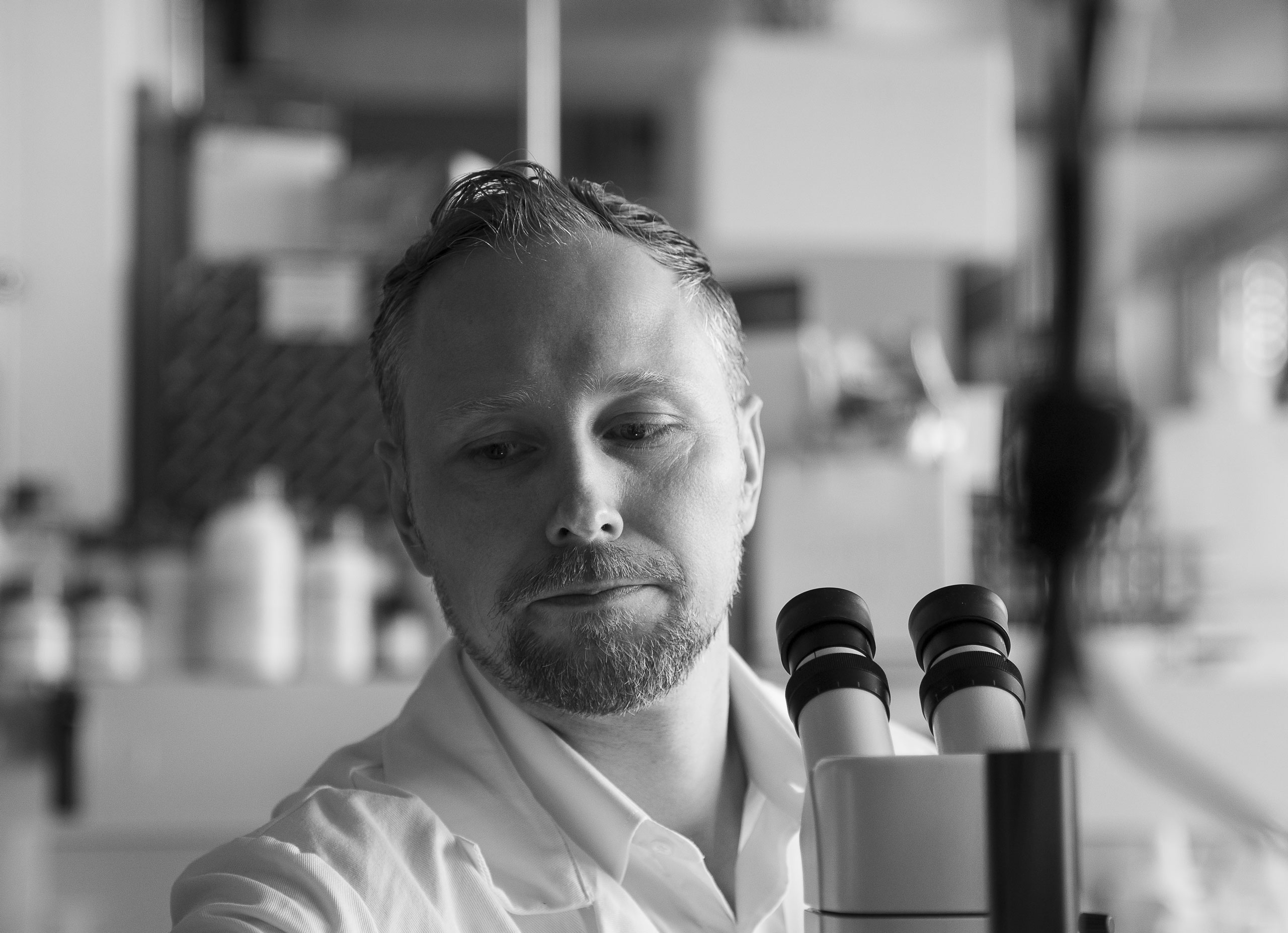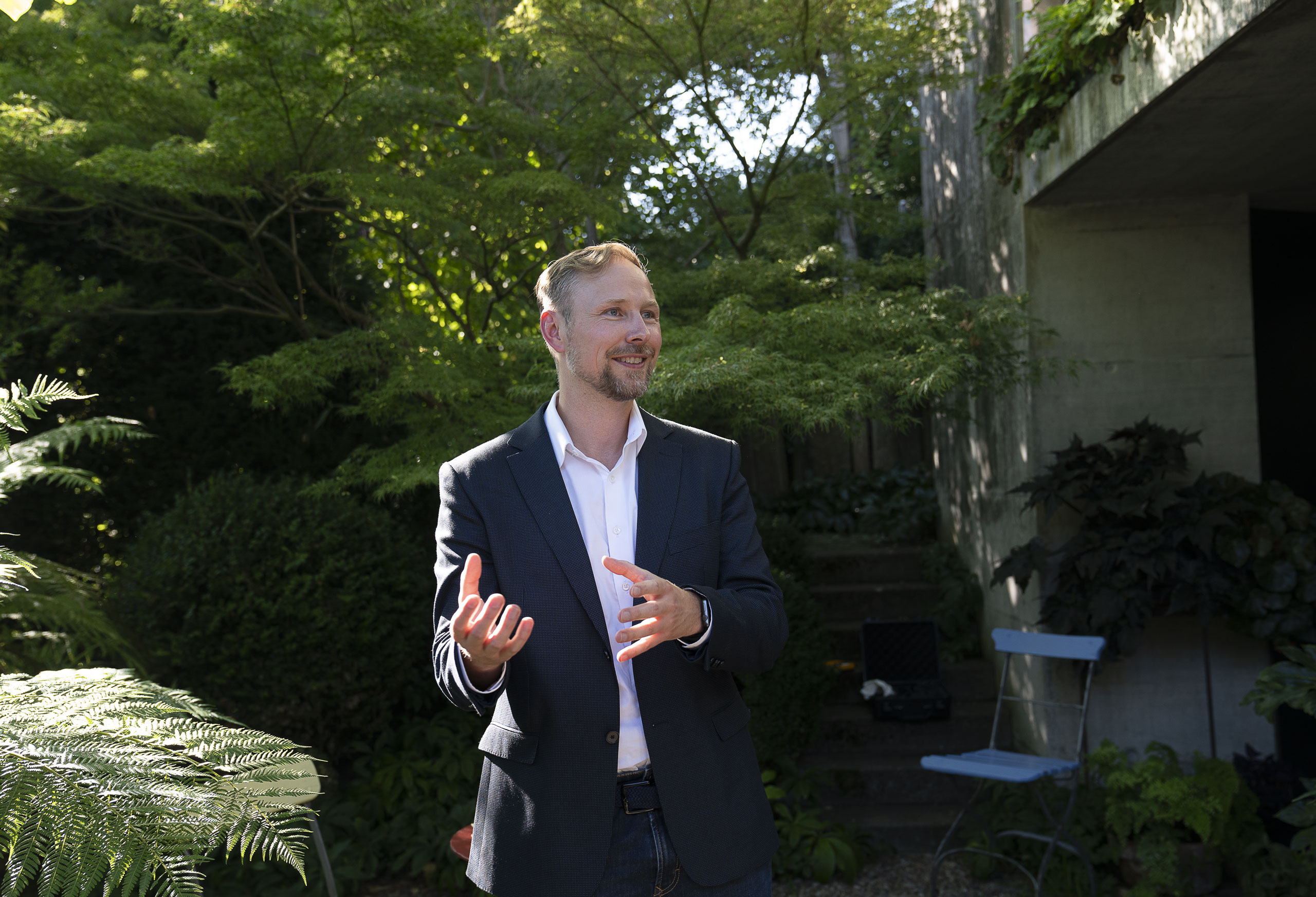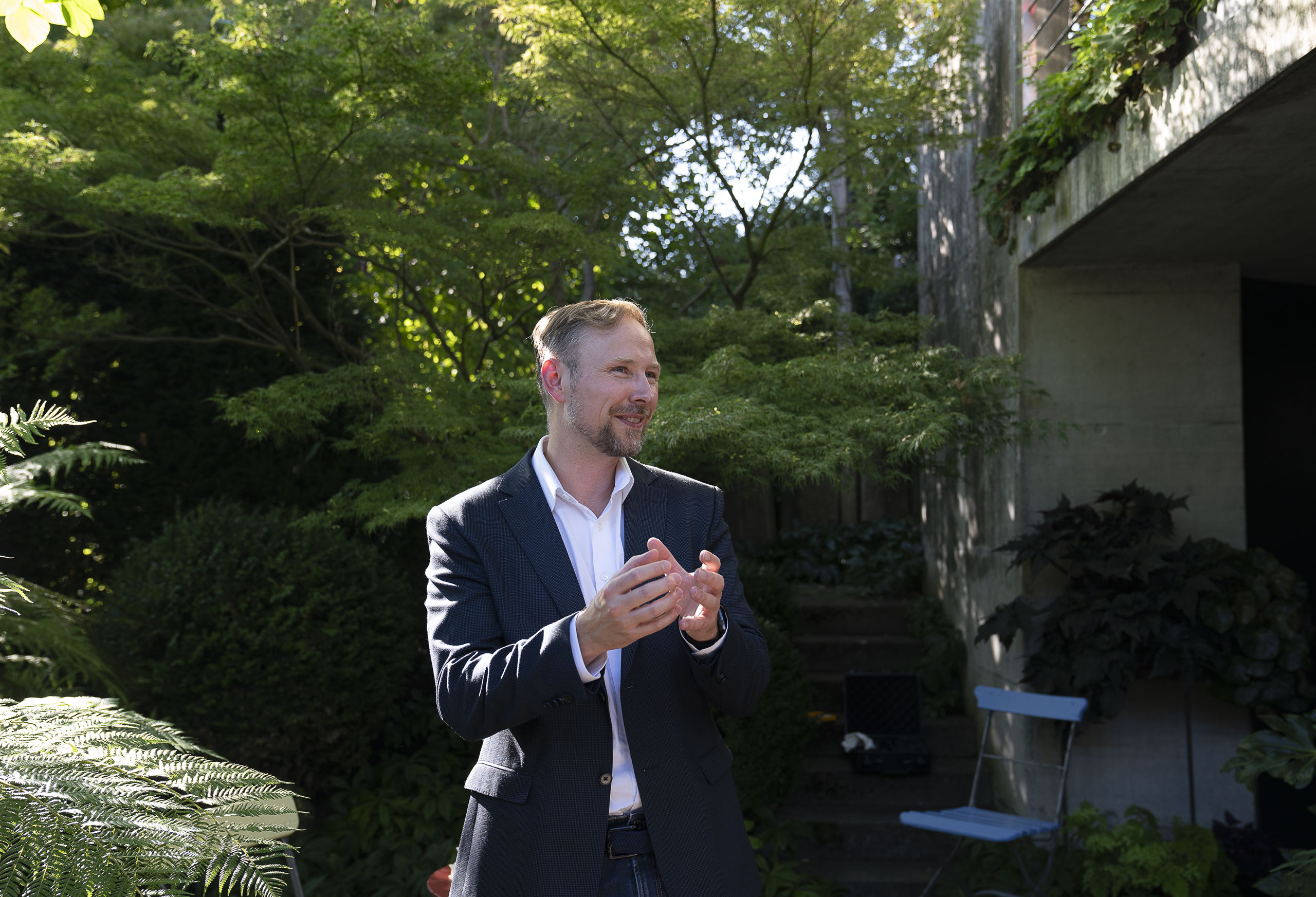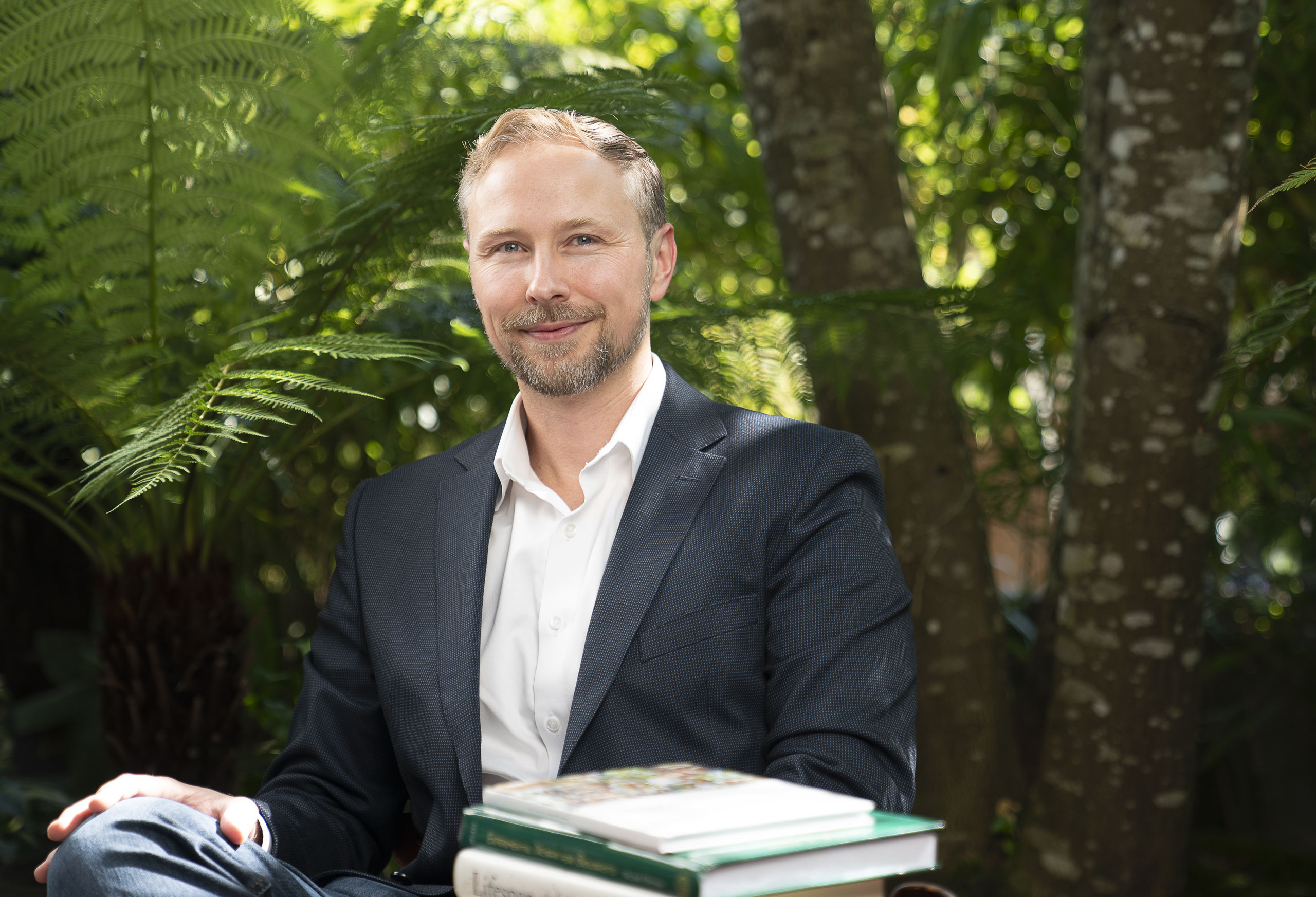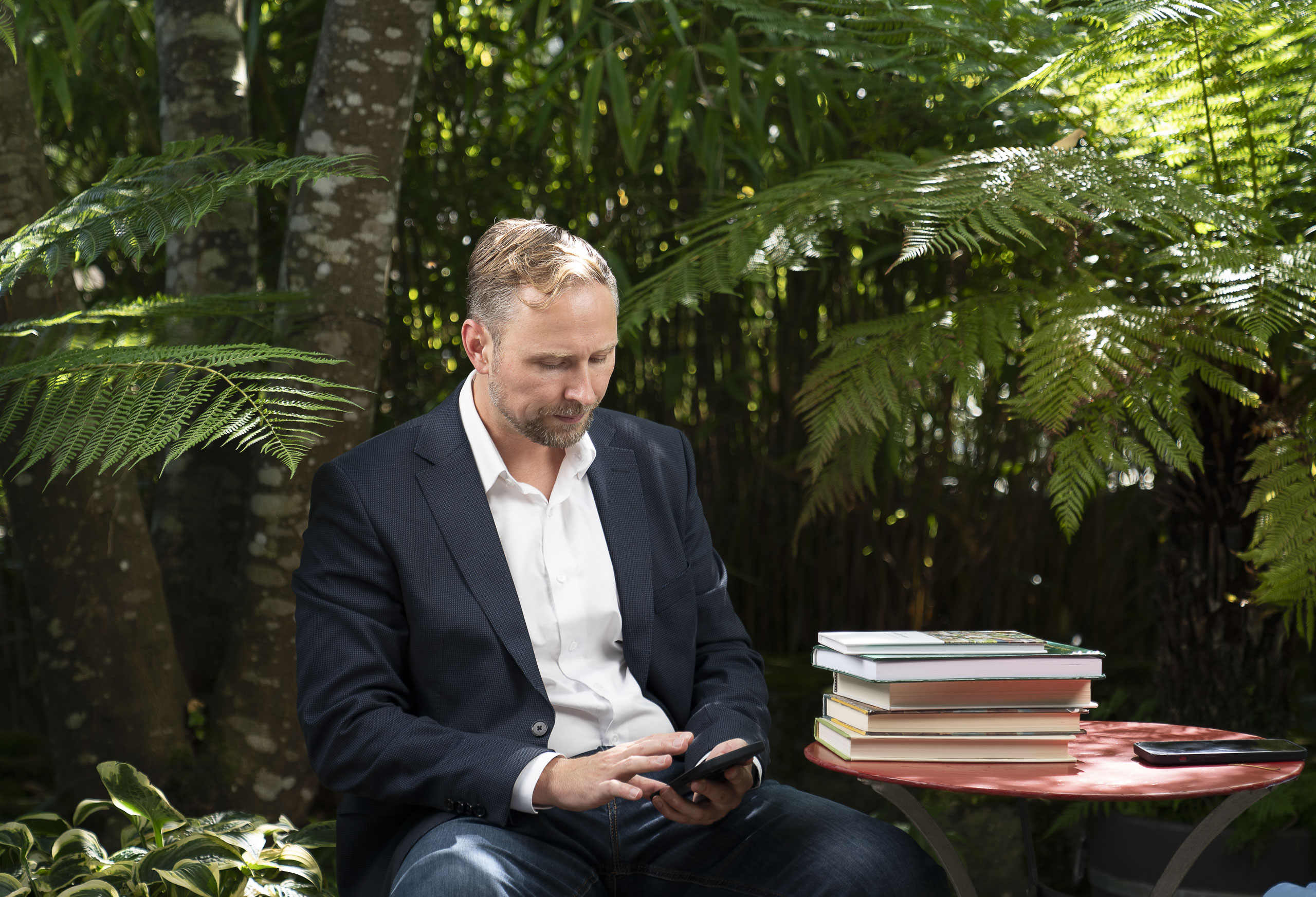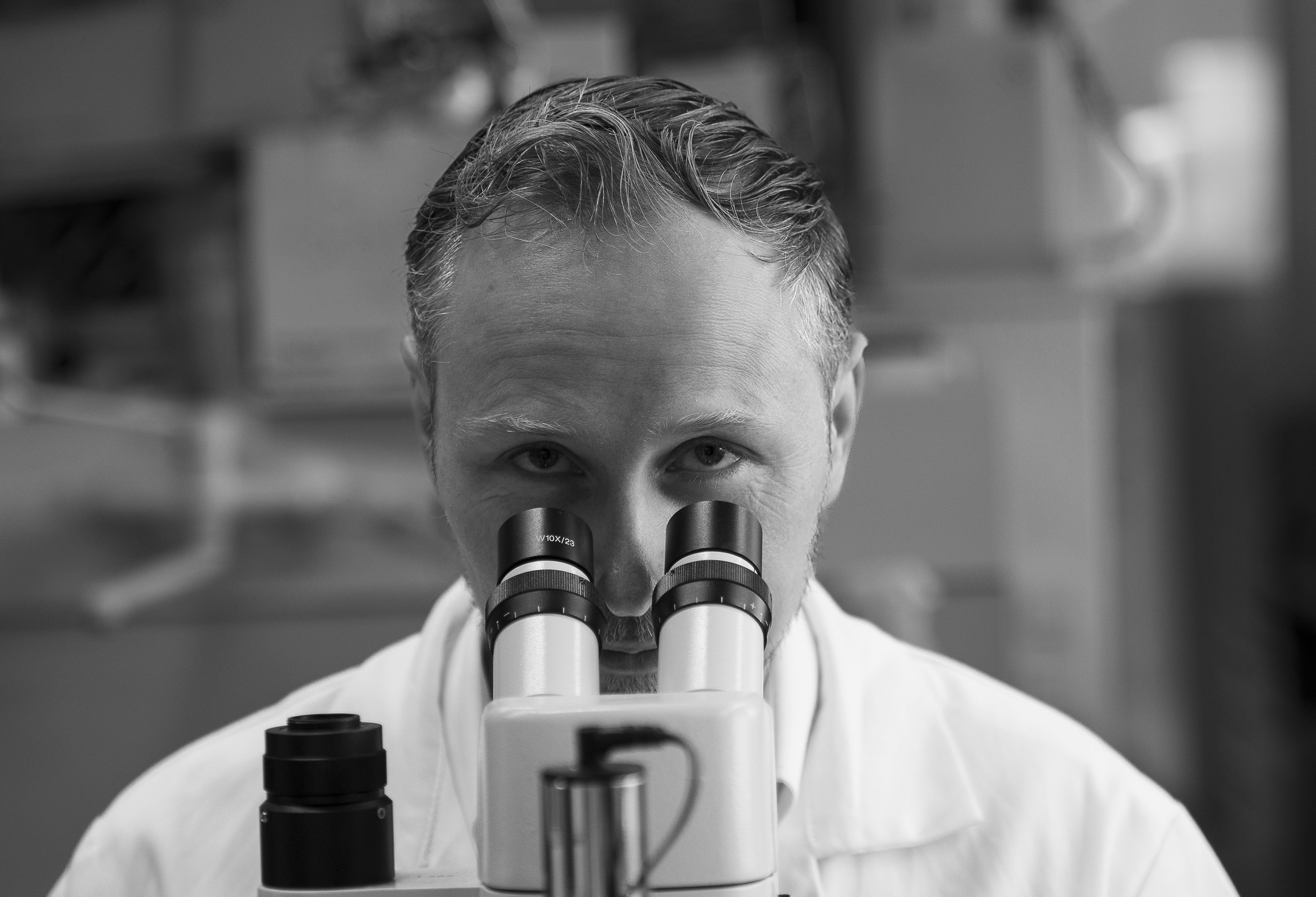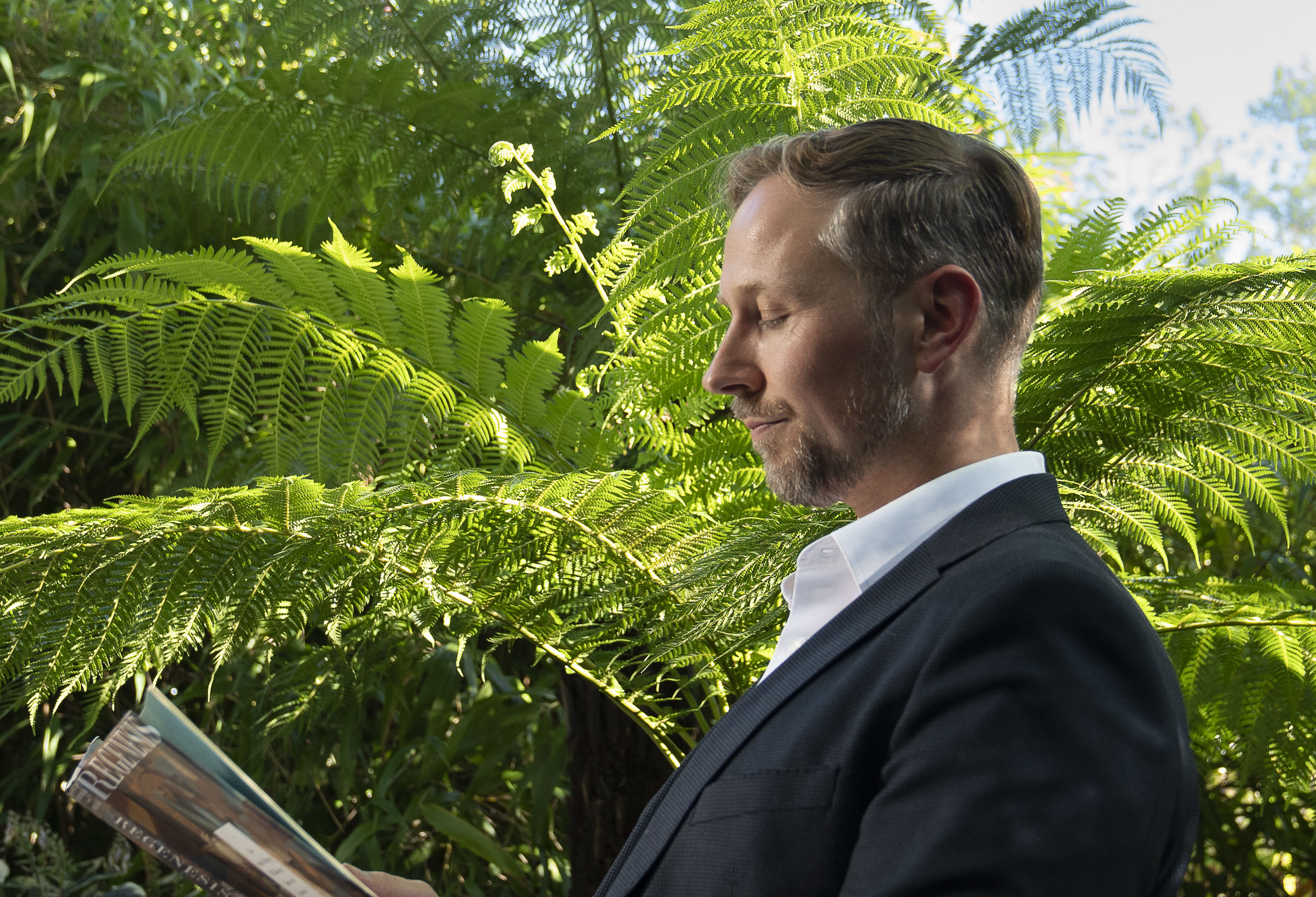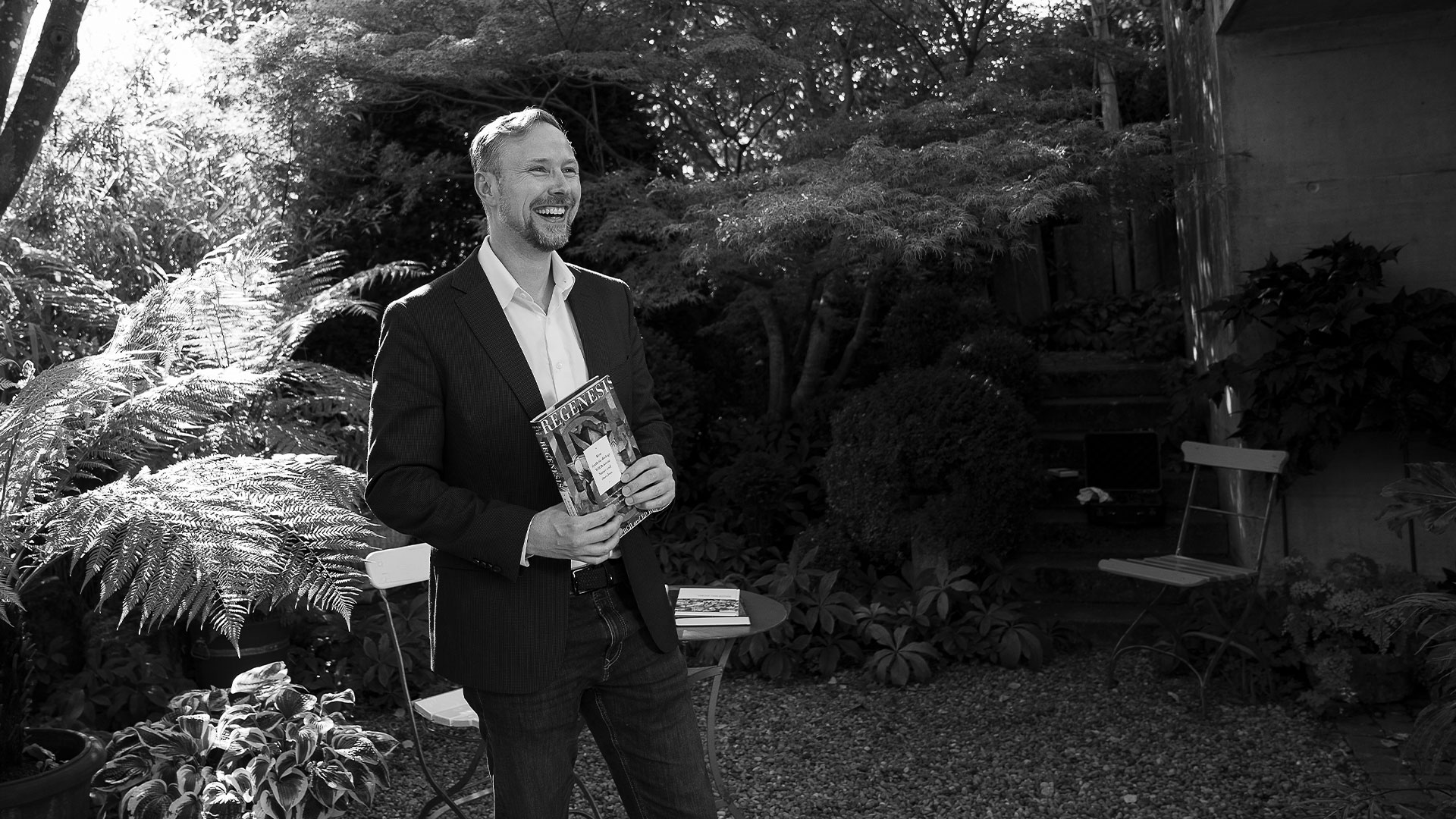Dr. Collin Ewald
Collin Ewald was born and raised in Basel, Switzerland. He received a Master degree in Molecular Biology from the University of Basel.
He went on to the City University of New York and got a Master degree in Philosophy and a PhD in Molecular Biology and Neuroscience.
BUT he achieved so much more read it in his biographical sketch:
Why do you think are you so successful? Which traits of yours made you come so far?
Well, you know typical people in my field, that are doing this, we are kind of obsessed, it’s a passion, it’s a hobby. So I get up in the morning around 4.30-5 am. I get up excited. When I continue making discoveries for me, it’s like being an artist. I really love what I do, and to move this forward of course, you have to have patience and persistence. So as you mentioned, I mean some discoveries come fast, you make them within a year. Other discoveries take a long time, at least two of my discoveries. One of them took 10 years and the other one 11 years in the sense of really figuring out how it works on the molecular basis, what molecules are changed during ageing, how it works exactly, and what the benefits are on the molecular level. It took a long time. There were lots of things to consider; I went in the wrong direction, you know, you’re climbing up a tree, but then you go to the wrong branch and say, “okay now I’m wrong, I’ll go backward “. Then go up until you find the top of the tree and figure out and try to solve the whole problem. And after all that, then bring your results out as a publication.
I can see it in your eyes you’re so enthusiastic, this is really passion, but a long-term passion.
Yes, it’s a long-term passion. I’m happy I was able to do this because, with any passion you have, you want toalsohave the freedom to study anything you want. For that, you have to raise money, so I was very fortunate to get money from the Swiss National Science Foundation. They gave me a lot of freedom to move forward and just let me move forward with it. Even though certain things at the beginning had no clear application. And it’s also one reason why I love to give interviews. Because, you know, my science is actually sponsored by people paying taxes in Switzerland. So you give it back. I want them to know what’s happening with their money, actually.
Having all these books here, do you have a sort of a role model or personality that impressed you, or better inspired you.
During my 20 years I’ve been doing this, I had lots of different mentors and inspiring people. And at the moment, the one that is my inspirational person is actually George Church at Harvard Medical School. He has a huge lab with over 100 people working for him, but at the same time, he combines not only academia but also industry, and he’s doing the craziest and most fantastic research.
When people ask you for advice, what do you say?
I give advice about the science aspect, but I am not a medical doctor, and I am not going to give any general advice.
You have students and your staff, who you have to lead and teach. How do you do it?
Yes, I mentor people. I mean, to manage a project, I usually choose people that can lead a project by themselves. I do the pioneering with the science. Sometimes, I have things I want to go in a direction, but if you give too much input, then the creativity is lost because in science, you want to do something original, something really new, a real breakthrough. Knowing that you have to give people lots of freedom for creativity so they can move forward and, I just give the direction. We want to solve that problem within certain limits and then let them go. It is also important that they own the project because if you do something by yourself, you’re much more motivated, as it can be a very frustrating business.
As you can see lately in the news, lots of PHD-students are becoming depressed and things like that, because it’s very tough. Not everybody’s made for that kind of pressure. First of all, they have to figure out whether they are willing to do that. We have lots of smart people, but you also have to have endurance. It’s like running a marathon. Lots of people can sprint and have athletic capability, but you not only have to have endurance, you also have to bring it to your work every day. It’s very hard, for years and years and years, that’s really hard.
Do you have a Utopia?
I mean, at the moment, we could do much more than what we do.
The reason I say this is because when you go to a doctor, and I saw this with my father, who had different problems, the doctor says: ”You are just old. At your age, your problems are just normal.“ We can do much more than this.
I think the science is there, and my vision is to really translate that and bring this into real life. We need a shift in medicine: from reactive medicine to a preventative medicine.
The main underlying problem is that the highest risk factor for all diseases is actually ageing. So, the idea of Geroscience, what we are doing, is the right thing. Actually, if we can slow down the ageing process, we can postpone these age-related diseases, and that would provide a huge advantage, not only for those ageing people but also a huge financial savings.
So, you create a real benefit, but the system has to change from sick care to health care to prevention. From reactive medicine to preventative and proactive medicine (see reference and reading material).
Watch the full interview with Collin Ewald
Good to know about the research on ageing and its progress.
So, the lowest hanging fruit is the living environment; doing sport helps very much, just doing exercise, eating a little bit less, and restricting calories without malnutrition. At the same time, you also have supplements. From our research, we found a supplement that’s in the area of exometrics and collagens and how these proteins actually decline over time. We found a way to actually activate this protein turnover of the collagen. It is something that works very well when you’re young. Also, when you go to the gym, for example, you’re training your biceps. Your muscle grows, but the surrounding extracellular matrix also needs to grow. For that, you need collagen and other things to be modeled there. And that, like any process, works very well when you are young, but it declines when you are ageing. We found a way to switch this on again and tell the body: ”Hey you should also work on the extracellular matrix”.
You have all the fantastic science in the background; the supplements work in mice, but we are not mice. Perhaps it doesn’t really work for us, and we are also all different, so you have to consider heterogeneity, too. That’s why you have to study this more in clinical trials, and so that’s the next step. I am going to move from translational medicine into clinical trials to show this. With that, I would close the circle. I have been doing this for 20 years. I guess over the next 20 years, I’m going to move to the forefront of clinical research.
So, just to give you a bigger picture for the last 20 years we started with the basic science question: What is the biggest mystery? And making those first experiments at the genetic level, at the biochemistry level, and the molecular level, we came pretty far with model organisms. At that time, 20 years ago, people and other scientists were laughing at us, but it affects everybody. We figured out a way from these model organisms to look into mice and were able to show also preclinical applications so-called to show effects that postponing ageing has an effect on age-related diseases. The field is stuck now in how we translate these really cool findings from mice and model organisms into humans. The only way to do this is in clinical applications, meaning that you want to figure out whether whatever you’re taking: “is safe and effective”. But the major challenge is that ageing is not classified as a disease. So, you have to establish certain protocols or certain primary outcomes so that you can always do the same experiment or protocol in order to get reproducible and exact results. For example, you have a drug or a supplement. First of all, you want to figure out if it is safe. You test that, of course, in a preclinical-package, then you have the right to look at humans, and then you’re going to test this. If it’s not toxic and has no side effects, that’s perfect. Exactly the result you want to have with something for ageing people and longevity. It should be as safe as water. I mean you can also die from water, but that is another topic. Then the second step is you want to know if it is effective, because when you take something, you have no clue whether it’s really working or not.
When we really have applications that work with humans, then I will have arrived at my mission statement:
To bring health and life quality to the elderly population.
